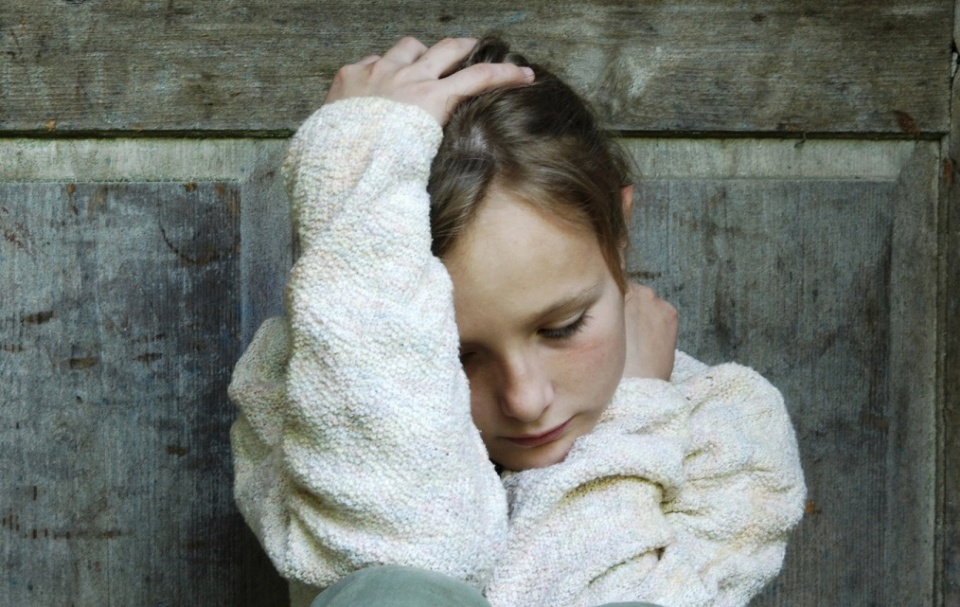As the weeks of August wind to an end, and most parents happily buy new school supplies,
Marc’s mother, Elaine is filled with dread. The last thing she wants is a replay of last year ―the tears, tantrums and fights to get Marc to school weigh
heavy on her heart.
Marc has always been a shy child, a gentle soul who stayed close to home. As a toddler, he would cling to his parents’
legs, too shy to approach other kids
in the playground ―even though he longed to
join them. The only way his parents could
get him to attend a birthday party was for one of them to stay with him. And then it happened; Marc became nervous about reading in class. What if he made a mistake? What if he felt nauseous?
So, on days he thought he might be asked to read, his hands shook, his heart beat so fast he felt it would jump right out of his chest and he refused to get out of the car. Sweet Marc would cry and beg. And if that didn’t work, he yelled, threatened to run away, all the while pleading to be brought back home. If his parents
managed to get him into the building,
oftentimes the call came later, saying he had a stomachache or refusing
to stay in class. Missing school meant that he would fall behind,
which caused even more trouble because nothing short of perfect
was good enough… otherwise, he says, the other
kids will laugh at him.
“For children
who are socially anxious, learning
about anxiety, practicing and rehearsing skills in a small group setting with a supportive environment is one very important step towards reclaiming their lives. DM’s groups can help.”
Poor Marc, he didn’t know that worrying when being uncertain about an out- come, learning
a new skill, or moving to a new class (or job) is normal.
The difference between
regular worry and what’s
happening to Marc is that worry was taking over his
life. He didn’t realize it, but he
has a lot of company. For children with social anxiety
―a fear of appearing
foolish or acting in a way that would be criticized or ridiculed
by others― social situations are the scariest
of all. In order to prevent feeling humiliated or embarrassed, they avoid these situations at all cost.
Avoiding those situations seems to makes sense
then - right? Wrong. As it turns out, avoiding what makes us anxious in the short term backfires
in the long run. Because
learning and growing means putting
ourselves in situations where we don’t have all the skills,
with practice and support
we grow more confident and overcome our worry.
Elaine took action to help Marc learn how to manage his anxiety so he could have the life he deserved. At DM she learnt that a more effective strategy would be to let Marc know that worrying is normal and he should expect it. With support, she helped Marc face his fears and understand why his body behaved in such a scary way. The good news is Marc, and other kids whose lives are made smaller
by anxiety, can learn it’s ok to feel uncomfortable (age appropriate), one small step at a time. Young people can learn to de- velop the confidence that comes with “I’m going to feel nervous and then it’ll be over”. We parents can be coaches , cheerleaders, and witnesses
to their courage
as they push past their hesitations—into all the wonderful
adventures coming up in their future,
called life. Contact DM for more information – Together we
can make a difference!

 In The Latest Issue:Latest Issue:
In The Latest Issue:Latest Issue:
- A Bittersweet Farewell
- The new Laval Aquatic Co...
- The End of an Era:
Articles
Calendar
Virtual- ANNUAL TEACHER APPRECIATION CONTEST
- APPUI LAVAL
- ARTS & CULTURE
- CAMPS
- CAR GUIDE
- CCIL
- CENTENNIAL ACADEMY
- CHARITY FUNDRAISING
- CITYTV
- COSMODÔME
- COMMUNITY CONNECTIONS
- COVER STORY
- DINA DIMITRATOS
- ÉCOLE SUPÉRIEURE DE BALLET DU QUÉBEC
- EDITORIALS
- ÉDUCALOI
- EDUCATION
- EMPLOYMENT & ENTREPRENEURSHIP
- FÊTE DE LA FAMILLE
- FÊTE DU QUARTIER SAINT-BRUNO
- FAMILIES
- FESTIVAL LAVAL LAUGHS
- FÊTE DE QUARTIER VAL-DES-BRISES
- FINANCES
- GLI CUMBARE
- GROUPE RENO-EXPERT
- HEALTH & WELL-BEING
- 30 MINUTE HIT
- ANXIETY
- CHILDREN`S HEALTH & WELLNESS
- CLOSE AID
- DENTAL WELLNESS
- EXTREME EVOLUTION SPORTS CENTRE
- FONDATION CITÉ DE LA SANTÉ
- GENERAL
- HEARING HEALTH
- MESSAGES FROM THE HEALTH AGENCY OF CANADA
- MENTAL HEALTH
- SEXUALITY
- SOCIAL INTEGRATION
- SPECIAL NEEDS
- TEENS
- THE NUTRITION CORNER
- THE NUTRITION CORNER - RECIPES
- VACATION DESTINATION
- WOMEN'S FITNESS
- WOMEN'S HEALTH
- HILTON MONTREAL/LAVAL
- HOME & GARDEN
- INTERNATIONAL WOMEN'S DAY
- JAGUAR LAVAL
- LAVAL À VÉLO
- LAVAL FAMILIES TV SHOW
- LAVAL FAMILIES MAGAZINE CARES
- LAVAL URBAN IN NATURE
- LE PARCOURS DES HÉROS
- LES PETITS GOURMETS DANS MA COUR
- LEON'S FURNITURE
- LEONARDO DA VINCI CENTRE
- LFM PREMIERES
- LIFE BALANCE
- M.P. PROFILE
- MISS EDGAR'S AND MISS CRAMP'S SCHOOL
- MISSING CHILDREN'S NETWORK
- NETFOLIE
- NORTH STAR ACADEMY LAVAL
- OUTFRONT MEDIA
- PASSION SOCCER
- PARC DE LA RIVIÈRE-DES-MILLE-ÎLES
- PÂTISSERIE ST-MARTIN
- PIZZERIA LÌOLÀ
- PLACE BELL
- PORTRAITS OF YOUR MNA'S
- ROCKET DE LAVAL
- SACRED HEART SCHOOL
- SCOTIA BANK
- SHERATON LAVAL HOTEL
- SOCIÉTÉ ALZHEIMER LAVAL
- STATION 55
- STL
- SUBARU DE LAVAL
- TECHNOLOGY
- TEDXLAVAL
- TODAY`S LAURENTIANS AND LANAUDIÈRE
- TODAY`S LAVAL
- WARNER MUSIC
- THIS ISSUE
- MOST RECENT
Magazine
Taking Charge of Childhood Anxiety
Articles ~e 105,7 Rythme FM 4 chemins Annual Teacher Appreciation Contest Appui Laval Arts & Culture Ballet Eddy Toussaint Camps THIS ISSUE MORE...
CONTESTS Enter our contests
CONTESTS Enter our contests
CALENDAR
Events & Activities
COMMUNITY Posts Events
PUBLICATIONS Our Magazine Family Resource Directory
LFM BUSINESS NETWORK Learn more
COUPONS Click to save!
COMMUNITY Posts Events
PUBLICATIONS Our Magazine Family Resource Directory
LFM BUSINESS NETWORK Learn more
COUPONS Click to save!
SUBSCRIPTIONS
Subscribe to the magazine
Un-Subscribe
E-NEWSLETTER Subscribe to our E-newsletter Un-Subscribe
WRITE FOR US Guidelines & Submissions
POLLS Vote today!
E-NEWSLETTER Subscribe to our E-newsletter Un-Subscribe
WRITE FOR US Guidelines & Submissions
POLLS Vote today!
ADVERTISERS
How to & Media guide
Pay your LFM invoice
SUGGESTIONS Reader's Survey Suggest a Listing
LFM About Us Our Mission Giving Back Contact Us
SUGGESTIONS Reader's Survey Suggest a Listing
LFM About Us Our Mission Giving Back Contact Us
 PICK-UP LOCATIONS
Get a copy of LFM!
PICK-UP LOCATIONS
Get a copy of LFM!
TERMS & CONDITIONS Privacy | Terms
ISSN (ONLINE) 2291-1677
ISSN (PRINT) 2291-1677
Website by ZENxDESIGN



 BY:
BY: 
Tweet
Share